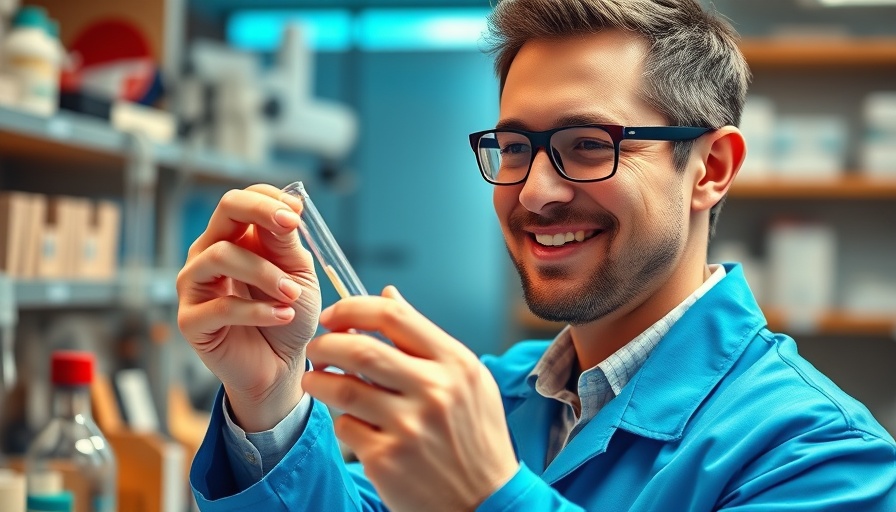
Breakthrough Research Links Gut Bacteria to Mercury Detoxification
In an exciting development for public health, researchers from UC San Diego's Scripps Oceanography Institute and UCLA have made significant strides in addressing the pressing issue of mercury poisoning from seafood. The team's study reveals that the engineered microbe Bacteroides thetaiotaomicron, a beneficial gut bacterium, can effectively reduce toxic methylmercury levels in the digestive system. During experiments, this powerful probiotic showcased its ability to eliminate the toxin from both the feces and tissue of mice within a mere 12 hours. These findings were published in the journal Cell Host and Microbe on May 2, 2025.
The Dangers of Methylmercury: Understanding the Risks
Methylmercury is a particularly dangerous form of mercury, resulting from the transformation of mercury in our oceans. As it ascends the food chain, the concentration increases, posing serious health risks to those consuming seafood. Pregnant women and their fetuses are especially vulnerable, with exposure linked to neurological impairments. This study, led by biogeochemist Amina Schartup, offers a ray of hope to many who rely on fish as a primary protein source serving as a crucial dietary element.
Why Seafood Is Essential Despite the Risks
Although health officials frequently advise avoiding high-mercury seafood, many individuals, particularly in coastal regions like North County San Diego, depend on fish for their nutritional needs. As Schartup emphasized, "Despite global efforts to reduce mercury emissions and its accumulation in fish, methylmercury levels in seafood are not expected to decline anytime soon." This challenge underscores the necessity of finding viable solutions rather than simply discouraging consumption.
Turning Research into Treatment: Potential Insights for Pregnant Women
By developing this microbe further, researchers hope to create a detoxification therapy that could significantly reduce health risks for women, especially pregnant ones, who consume seafood. Hsiao, a co-senior author from UCLA, envisions a future where intake of a probiotic could offset methylmercury risks. This marks an innovative approach to addressing a critical health issue within the community.
Funding Challenges May Impact Future Research
While the possibilities are promising, the research team faces uncertainty due to looming budget cuts to the National Institutes of Health. The continuous funding and support from science and health institutions will be pivotal in ensuring that this potentially game-changing research progresses.
What This Means for North County Residents
As local residents of North County San Diego and beyond, the implications of this research resonate deeply. The contents of our diets, particularly in areas with rich seafood traditions, play a crucial role in our health and wellbeing. Understanding how innovative solutions like probiotics can help mitigate risks offers hope to individuals concerned about dietary mercury exposure.
 Add Row
Add Row  Add
Add 




 Add Row
Add Row  Add
Add 

Write A Comment